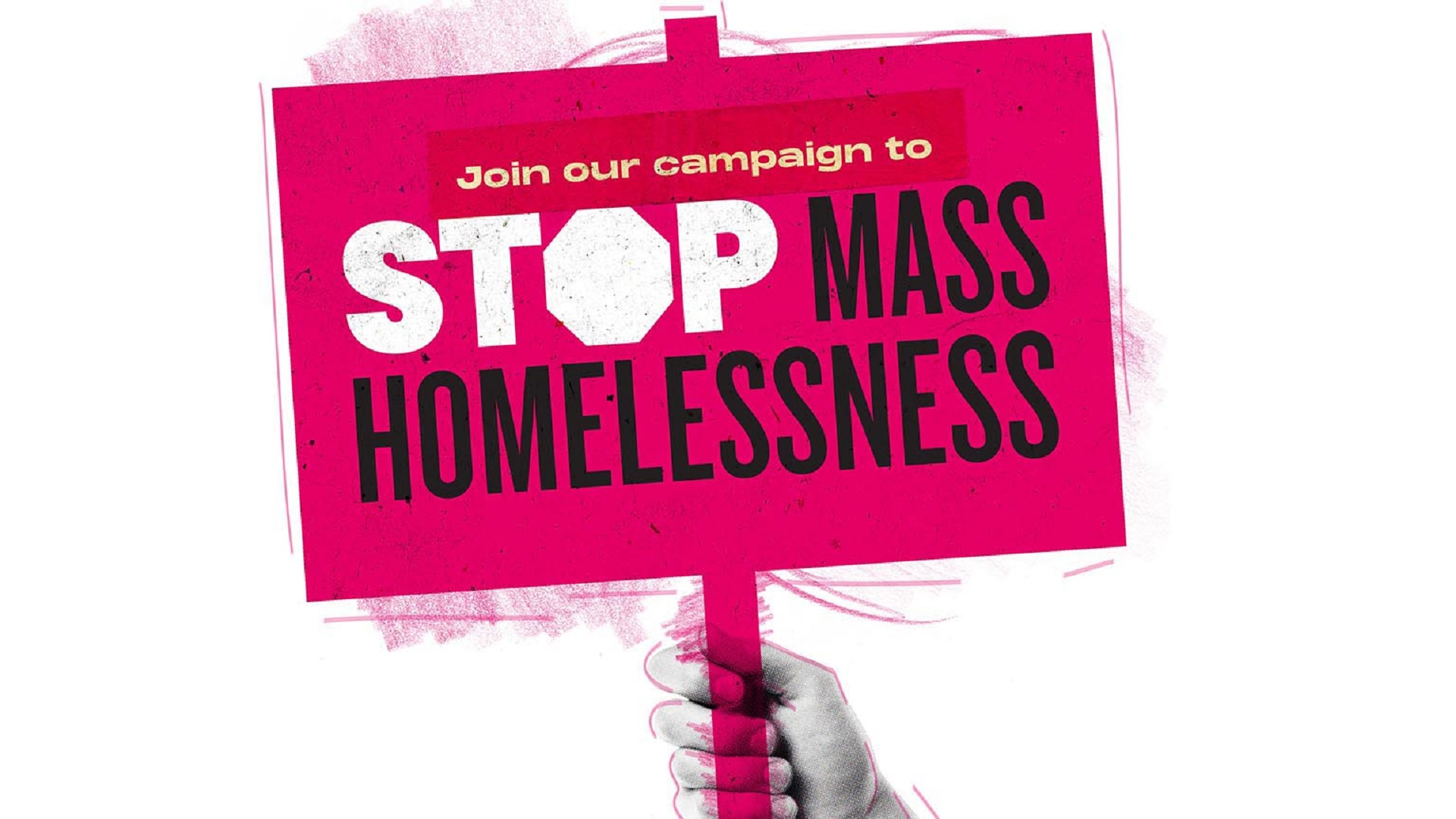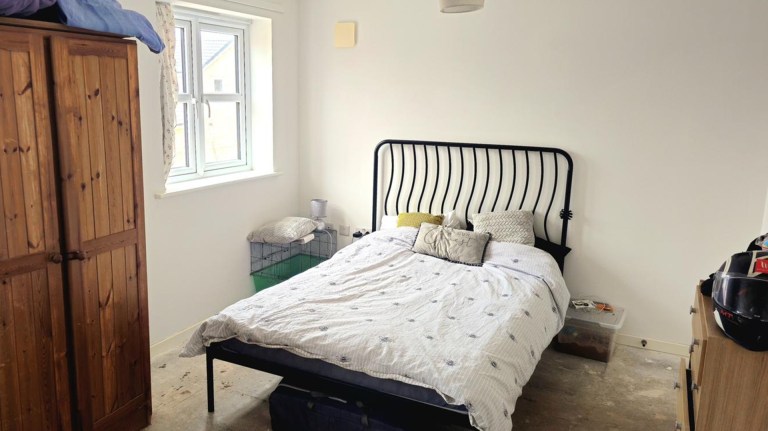In their letter, the poverty battling charity warned cutting the £20 increase would “fundamentally undermine the government’s mission to level up” and “risk repeating the same mistakes that were made after the last economic crisis”.
A decade of austerity followed the 2008 financial crisis and hit people on low incomes the hardest. Sir Michael Marmot’s healthy inequity report, published last year, found a seven per cent cut to government spending over the last decade was “likely to have contributed to widening health inequalities” that saw life expectancy fall in some areas of England.
Now with the impact of the pandemic still being felt, JRF insisted losing the extra amount currently paid through universal credit could have a similar impact on the country’s poorest people.
The Big Issue has also called on the UK government to make the £20 increase permanent as part of the Stop Mass Homelessness campaign to prevent thousands of people losing their home in the months ahead.
That’s why The Big Issue has signed the open letter alongside 99 other organisations. Read the full letter below.
Dear Prime Minister,
Advertising helps fund Big Issue’s mission to end poverty
We are writing to collectively urge you not to go ahead with the planned £20-a-week cut to universal credit and working tax credit at the beginning of October.
Many of us provide frontline support in communities up and down our country and see first-hand the importance of our social security system. Life is full of crises that we cannot plan for, such as job loss or illness, and periods of lower earnings or caring responsibilities.
We all need the security and stability of a strong lifeline, not just during a national crisis, but every day.
Imposing what is effectively the biggest overnight cut to the basic rate of social security since World War II will pile unnecessary financial pressure on around 5.5 million families, both in and out of work.
At the start of the pandemic, the Chancellor rightly said that he was introducing the £20 increase to “strengthen the safety net” – a tacit admission that a decade of cuts and freezes had left it unfit to provide the support families need. We all strongly supported this crucial improvement in support.
We are at risk of repeating the same mistakes that were made after the last economic crisis, where our country’s recovery was too often not felt by people on the lowest incomes. The erosion of social security support was one of the main drivers of the rise in in-work and child poverty, and contributed to a soaring need for food banks, rising debt and worsening health inequalities.
Advertising helps fund Big Issue’s mission to end poverty
We deeply regret that the Department for Work & Pensions has not published its assessment on the impact of cutting universal credit and working tax credit. However, the latest independent analysis from the Joseph Rowntree Foundation (JRF) shows it risks plunging 500,000 people into poverty, including 200,000 children. It will take the main rate of out of work support down to its lowest levels in real terms since around 1990.
This is not a question of having to choose between a recovery based on getting people into jobs or investing in social security, in fact most families impacted by this cut to universal credit and working tax credit are already in work. The reality of the UK labour market means that to improve living standards, we need to both improve job quality and strengthen the social security system. We also must never lose sight of the need to provide adequate support to families who are not able to work so they can meet their needs with dignity.
Six former Conservative Work & Pensions Secretaries believe previous cuts to social security spending went too far and oppose this cut, and your own Conservative MPs are warning that it will have deep and far-reaching effects in their constituencies.
Recent analysis from JRF shows that 413 parliamentary constituencies across Great Britain will see over a third of working-age families with children hit by the planned cut to universal credit and working tax credit on 6 October 2021. Of these 413 constituencies, 191 are Conservative – 53 of which were newly won at the last general election or in a subsequent by-election.
This looming cut would fundamentally undermine the government’s mission to level up. Citizens Advice has identified that people are one and a half times more likely to claim universal credit in places the government has prioritised for levelling up investment. They also found for every £1 that could be invested from the Levelling Up Fund in England, £1.80 would be taken from these local economies if the government presses ahead.
Advertising helps fund Big Issue’s mission to end poverty
Furthermore, it is unacceptable that legacy benefits, such as Employment and Support Allowance, Jobseeker’s Allowance and Income Support, continue to be excluded from this crucial improvement in support, mostly impacting people who are sick, disabled or carers.
We are rapidly approaching a national crossroads which will reveal the true depth of the government’s commitment to improving the lives of families on the lowest incomes.
We all want a social security system that supports families to escape poverty rather than pulling them deeper into it. However, this cut risks causing immense, immediate, and avoidable hardship. A strong social security system is a crucial first step to building back better. We strongly urge you to make the right decision.
Yours sincerely,
Action For Children
Advice NI
Advertising helps fund Big Issue’s mission to end poverty
APLE Collective
The Association of Charitable Organisations
Become
Bevan Foundation
The Big Issue
Bright Blue
Advertising helps fund Big Issue’s mission to end poverty
The British Association of Social Workers
British Psychological Society
Business in the Community
Carers UK
Caritas Social Action Network
Centre for Cities
Advertising helps fund Big Issue’s mission to end poverty
Centrepoint
Child Poverty Action Group
Children England
Christians Against Poverty
Church Action on Poverty
Citizens Advice
Advertising helps fund Big Issue’s mission to end poverty
Citizens Advice Scotland
Citizens UK
Communities that Work
Crisis
Disability Benefits Consortium (a network of over 100 disability organisations)
Employment Related Services Association (ERSA)
Advertising helps fund Big Issue’s mission to end poverty
End Child Poverty Coalition
End Furniture Poverty
The Equality Trust
The Faculty of Public Health
Family Fund
Feeding Britain
Advertising helps fund Big Issue’s mission to end poverty
The Food Foundation
Generation Rent
Gingerbread, the charity for single parent families
Greater Manchester Poverty Action
The Health Foundation
Homeless Link
Advertising helps fund Big Issue’s mission to end poverty
The Hygiene Bank
Independent Food Aid Network
Institute for Public Policy Research (IPPR)
Joseph Rowntree Foundation
Jubilee Debt Campaign
Learning and Work Institute
Advertising helps fund Big Issue’s mission to end poverty
Little Village
Lloyds Bank Foundation for England & Wales
Macmillan Cancer Support
Mental Health Foundation
Mind
Money Advice Trust
Advertising helps fund Big Issue’s mission to end poverty
The MS Society
National AIDS Trust
National Association of Head Teachers (NAHT)
National Children’s Bureau
National Education Union
National Housing Federation
Advertising helps fund Big Issue’s mission to end poverty
National Residential Landlords Association
National Survivor User Network
Neighbourly
New Economics Foundation
North East Child Poverty Commission
Northern Housing Consortium
Advertising helps fund Big Issue’s mission to end poverty
Octavia
One Parent Families Scotland
Oxfam GB
PlaceShapers
Policy in Practice
The Poverty Alliance
Advertising helps fund Big Issue’s mission to end poverty
The Poverty Truth Community
Rethink Mental Illness
RNIB (Royal National Institute of Blind People)
RNID
The Robertson Trust
Royal College of Paediatrics and Child Health
Advertising helps fund Big Issue’s mission to end poverty
Royal College of Psychiatrists
Royal Society for Public Health
The Runnymede Trust
The Salvation Army
Save the Children
Scope
Advertising helps fund Big Issue’s mission to end poverty
Scottish Out of School Care Network
Shelter
St Mungo’s
Standard Life Foundation
StepChange
Sustain: the alliance for better food and farming
Advertising helps fund Big Issue’s mission to end poverty
SVP Northern Ireland
Transforming Lives for Good (TLG)
The Trussell Trust
Trust for London
TUC (Trades Union Congress)
Turn2us
Advertising helps fund Big Issue’s mission to end poverty
UCL Institute of Health Equity
UK Women’s Budget Group
Women’s Regional Consortium Northern Ireland
Working Families
Young Lives vs Cancer
Young Women’s Trust
Advertising helps fund Big Issue’s mission to end poverty
Z2K
4in10 London’s Child Poverty Network
Hundreds of thousands of people are at risk of losing their homes right now. One UK household is being made homeless every three-and-a-half hours.
You can help stop a potential avalanche of homelessness by joining The Big Issue’s Stop Mass Homelessness campaign. Here’s how:










